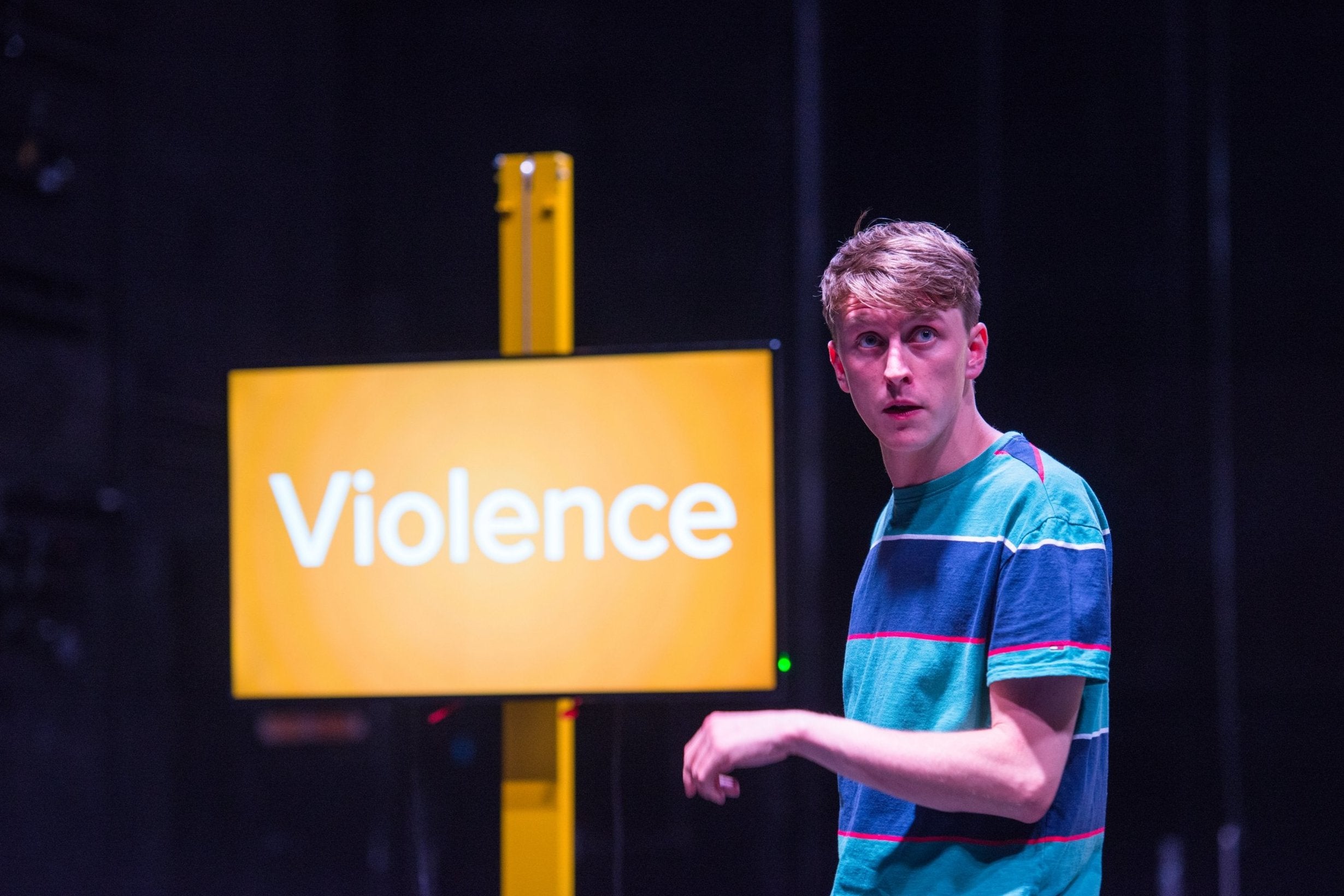Edinburgh Fringe Festival: 2018: Lyn Gardner reviews international shows 'Home' and 'The End of Eddy'
The verdict on some of the international shows appearing at this year's Fringe Festival

Your support helps us to tell the story
From reproductive rights to climate change to Big Tech, The Independent is on the ground when the story is developing. Whether it's investigating the financials of Elon Musk's pro-Trump PAC or producing our latest documentary, 'The A Word', which shines a light on the American women fighting for reproductive rights, we know how important it is to parse out the facts from the messaging.
At such a critical moment in US history, we need reporters on the ground. Your donation allows us to keep sending journalists to speak to both sides of the story.
The Independent is trusted by Americans across the entire political spectrum. And unlike many other quality news outlets, we choose not to lock Americans out of our reporting and analysis with paywalls. We believe quality journalism should be available to everyone, paid for by those who can afford it.
Your support makes all the difference.Home ★★★★☆/ The End of Eddy ★★★☆☆
Lots of people think theatre is like watching paint dry. At the start of Geoff Sobelle’s Home (King’s Theatre, to 26 August) it looks as if we might be in for a long evening of DIY. A man kneels on a bare stage slowly tacking plastic sheeting on to some panels of wood.
Eventually he manages to stand the rackety panels upright. Behind them something swims into view. When he removes them – like a conjuror discarding a cloak – there is a bedroom. His bedroom. Before you can say abracadabra, an entire house has sprung up on stage. His house. Or is it?
Home is a delicious piece of dreamlike visual theatre and sleight of mind which makes us think about home and ownership differently. Wherever we live, and whether we rent or own, we are only temporary custodians of a space where the ghosts of those who came before still linger and where others will follow.
Sobelle makes the point brilliantly in sequences in which one person goes to sleep in a bed and a few seconds later an entirely different one wakes up. There is a scene where the bathroom is flooded with multiple occupants, all entirely oblivious to each other as they go about their daily ablutions.
It’s a neat trick, but just when it begins to pall, Sobelle opens the show and the stage itself out to the audience. In one of the most neatly handled pieces of audience participation I’ve ever seen, large numbers of the audience are invited on stage and take possession of it in one big – and constantly changing – party. What begins as a house warming turns into a cycle of births, marriages and death.

Home is delightful, but it is not insubstantial as it pulls down the fourth wall between performers and audience, and welcomes us into the space. It’s a joyous evening but one tinged with sadness, as it reminds the audience that while a house often stands for hundreds of years, we are simply moths briefly beating our wings against its walls.
If Sobelle’s show probes what makes somewhere feel like home, then Pamela Carter and Stewart Laing’s staging of Edouard Louis’s memoir The End of Eddy (The Studio, to 26 August, then touring) considers how sometimes only leaving home will allow you to be yourself.
That’s the case for Eddy, played by two fine young actors – Alex Austin and Kwaku Mills – who lives in a grim, post-industrial village in France. In Eddy’s family home the TV is always on, hope and money are in short supply and alcohol lubricates adult pain.
Dad boasts he has never laid a hand on a member of his family but the holes in the walls bear testament to the violence in which the clan lives.
Eddy has been given a tough man’s name but everyone in the viciously homophobic village knows he’s gay, including the two bully boys at school who beat and humiliate him in a corridor every day. The really startling thing about this story is that it is not set back in the 1970s but quite recently: Louis is still only 25.
Laing’s staging, co-produced by the Unicorn, finds clever ways to remind us that what we are watching is a piece of theatre, and one culled from a book. The family’s quartet of TV sets become monitors on which all the characters are represented as talking heads.
Carter’s text keeps knowingly pointing up the fact that what we see is not the whole story, and some things have been included and others excluded.
It’s a cool, highly self-conscious piece of theatre, and while it is not a show that allows you to embrace it emotionally, it is one that scrutinises masculinity with real thoughtfulness, and points to how economic deprivation affects men’s view of themselves and their behaviours.
Eddy’s way out of his village is through education and the arts, which take him not just to another place but into the middle class. The question resounds: why is it that only by the killing his past self – Eddy – does Edouard have any chance of making a bearable future for himself?
Tickets: 0131 226 0000; www.edfringe.com
Join our commenting forum
Join thought-provoking conversations, follow other Independent readers and see their replies
Comments